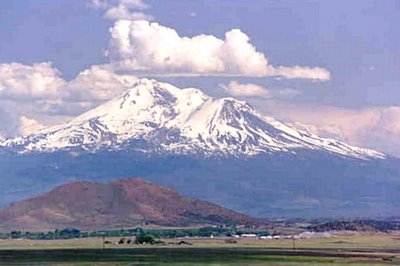Beyond Beneath--Prolog

Death, and violent death especially, has a certain dark glamour for me. I admit that. I’ve lived in its shadow most of my life, and no doubt partly by choice. In the end, though, it’s just death--frightening, sordid, usually messy, fundamentally not very interesting. Anyone can die violently, by accident or otherwise, and in my experience far too many people do.
But disappearance--now there’s an art form, a brand of misfortune I can’t help being fascinated by. A good disappearance has a metaphysical dimension, some hint that a door has opened on wider, normally unapproachable issues. Absent a factual explanation, we’re free to stray into other realms--the conspiratorial, the fantastic, the spiritual. What questions, we have to wonder, should we even be asking?
Usually, of course, that’s all we do. We wonder. If a disappearance is a doorway, it’s one we’re likely to sidle past, glance into, loiter near, but not to go through. The particular doorway offered up by the disappearance of Wade Goddard and Lulu Scott stood open for over a decade, and I hesitated in front of it for all that time. I thought, maybe, that what I knew didn’t matter, or that I’d done all I could with it. Then, on a warm evening in the first spring of the new century, I read a letter in the pages of a literary journal called Lost Coast Review, and it pulled me through that doorway.
It was pure coincidence that I read the letter. I can’t even recall how I came by the magazine. I was in a hospital at the time, recovering from my third climbing accident in two years, a thirty-foot leader fall on Thunderbolt Peak in the Eastern Sierra. This time I’d broken two ribs, punctured a lung, and further mangled the bad disks in my back. When I’m mending, a special calm comes over me, a reflective peace that I’m convinced is only in part the result of hospital drugs. I read a lot, wading indiscriminately through whatever comes to hand, and I think about the course of my life in a way that I'd usually avoid.
Being a serious climber--at least the way I’d done it--means long periods of living like a coyote, subsisting at the fringes. You give up every luxury and most comforts, you work hard and train harder. Whenever you’ve scraped together a little cash, you cut your anchors loose and take an endless drive or a redeye flight to some grubby mountain outpost. Once there, you put yourself through more suffering than you thought you could take, chasing an abstract and absurdly dangerous goal.
Those are the hardships, self-inflicted and thus not grounds for complaint. The rewards are indelible memories; feelings and impressions that make the whole spectrum of ordinary existence seem pale. You carry them with you as long as you live, little votive lights that never go out.
That was what I’d cared about most for a long time. But I was thinking, as I lay there with the rough cream-colored pages of Lost Coast Review still in my fingers, about the obvious fact that I was going to have to give up hard climbing. My body simply wasn’t going to tolerate it anymore. I’d been fighting that inevitable conclusion for years, because I’d had nothing to replace climbing with. Living broke was easy enough. Living without a sense of purpose was another thing entirely.
Maybe it was just desperation, but now it suddenly seemed to me that the answer to my problem involved this letter, a woman I’d heard about but never met, and a story that a Norwegian climber had told me one night at 12,000 feet on Mt. Rainier. It seemed to me that I might be able to solve the riddle of Wade and Lulu’s disappearance, and that if I did, I might solve some riddles of my own.

0 Comments:
Post a Comment
Subscribe to Post Comments [Atom]
<< Home